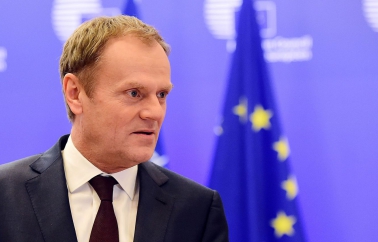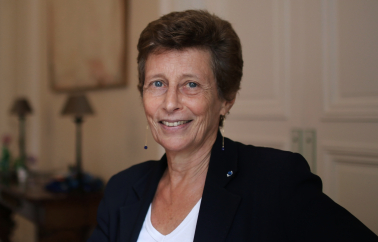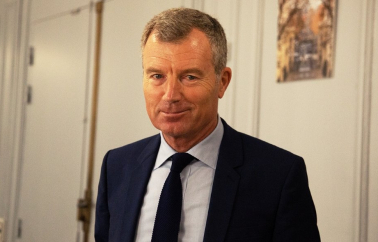
EU President Tusk debates future of Europe with local leaders ( Source Commitee of the Regions)
EU President Tusk debates future of Europe with local leaders
8/02/2016
Also on the agenda: Schengen Agreement, debates with Dutch Minister Plasterk, EU Commissioners Creţu and Navracsics
During the European Committee of the Regions' plenary on 10 February in Brussels, regional and local leaders will discuss the main challenges facing Europe with the President of the European Council Donald Tusk. During the two day plenary, cooperation with the Dutch EU Presidency, the future of regional policy, as well as youth policies and the fight against radicalisation are also on the agenda.
The President of the European Council, Donald Tusk, will debate with members of the European Committee of the Regions the key challenges on the Council agenda such as migration, climate change and the UK referendum.
The next day the assembly will debate and look to adopt a resolution on the EU's Schengen border-free area.
Other guests include Tibor Navracsics, Commissioner for Education, Culture, Youth and Sport, who will take the floor to discuss youth and education policy; Corina Crețu, Commissioner for Regional Policy, who will speak about how to improve of the EU's cohesion policy; and Ronald Plasterk, Minister of Interior and Kingdom Relations, presenting the Dutch EU Presidency's priorities and discussing areas of cooperation such as the EU urban agenda and simplification of structural funds.
The CoR will further discuss and adopt opinions on:
Integration of the long-term unemployed people into the labour market – 10 February
More efficient and flexible public employment services are needed to tackle long-term unemployment in Europe, argues the draft opinion prepared by Enrico Rossi, (IT/PES), President of the Tuscany Region. His opinion also calls for measures to strengthen demand for labour and suggests that different EU structural funds could be used to this purpose.
Making cities and regions part of the European Semester – 10 February
The resolution on the Annual Growth Survey 2016 points to the need to address regional disparities in the economic and social performance and administrative capacity as part of the European Semester - the yearly cycle of economic policy coordination within the European Union - and the need to give cities and regions a fixed role in this process.
Age-friendly tourism – 10 February
The draft opinion on 'Age-friendly tourism', drafted by Annemiek Jetten, Mayor of Sluis (NL/PES), looks specifically at the demographic changes shaping the tourism industry. The opinion's recommendations are based on evidence that older tourists have different needs, motivations and expectations from working-age tourists.
Data in the fisheries sector – 10 February
This draft opinion, prepared by Olgierd Geblewicz (PL/EPP), underlines the importance of free access to data on fisheries and of taking better account of the needs of local and regional authorities in order to establish a sustainable common fisheries policy at regional level.
Innovation and modernisation of the rural economy 10 February
This draft opinion by Randel Länts (EE/PES), Member of Viljandi City Council, sets out ideas aimed at modernising rural areas and reducing rural-urban disparities. Suggested measures include: increasing EU funds for rural development, a minimum threshold for vocational training, measures to stimulate small businesses' product development and more efforts to increase access to high-speed internet and expand ICT knowledge in rural areas.
Indicators for territorial development – GDP and beyond – 11 February
In the opinion drafted by Catiuscia Marini, President of the Umbria Region (Italy) and President of the CoR's PES Group, representatives of local and regional government will look at how to complement GDP to measure progress made towards sustainable growth in the EU's regions and cities.
European cooperation in the youth field 11 February
This draft opinion argues that more resources and cooperation are needed to tackle youth unemployment, improve the integration of young refugees and prevent the radicalisation of young in Europe. The opinion which has been drafted by Csaba Borboly (RO/EPP), President of Harghita County Council, proposes actions to ensure that all young people in the EU have minimum skills and qualifications and highlights the need to stimulate excellence and innovation in education and training.



